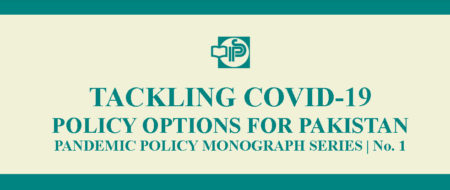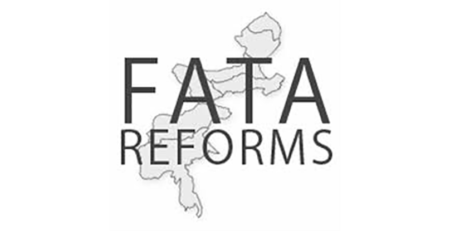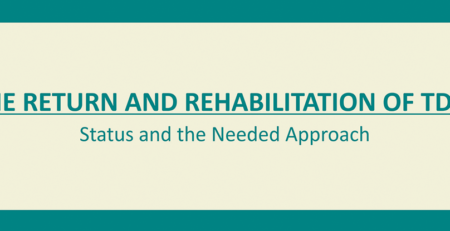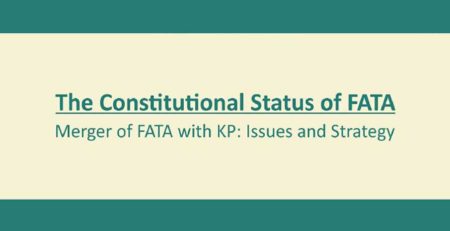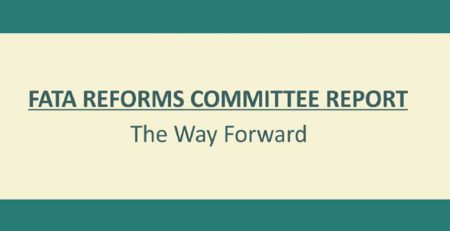Should Pakistan Abolish or Retain Capital Punishment?
Why Muslims Resist Abolition
While human beings have a lot of common societies do differ become of the value framework they follow a society based on the principles of Islam is therefore essentially different from the societies based on contemporary Western philosophy. Developments during the past two and half centuries in Europe and America have created a capitalist society and the capitalistic behavior is not confined to economic activity. Religion has already been abandoned, along with the commandment, “Whosoever sheds man’s blood, by man his blood shall be shed, for in the image of God He made man.”[52] Money and materialism make the headlines of public life while human rights are adopted and promoted in an attempt to fill the moral gap. Individual freedoms and economic non-dependence underpin the entire structure of human rights. Disintegration of family institutions and other social ties based on kinship has been an obvious result of this phenomenon. A self-centered lifestyle is considered the height of civilization though it virtually leaves every individual to fight his or her own war for subsistence, of course, at his or her own expense. Even the closest relations are no more revered. The presence or absence of a close relative rarely makes much difference for a member of a capitalist society as the focus of all activities is money, not people.
On the contrary, Islam lays foremost importance on the human being and all of its teachings seek to uphold the honor and dignity of man. Each person is required and taught to respect, not only the life, but also the belongings, dignity and sentiments of others. Islam seeks to establish a society where every individual has a responsibility towards others. Muslims are expected to take care of and remain concerned about their fellows and to see the entire society as one unit, each part strengthening the other. While the abolitionist movement considers murder an “ordinary crime,”[53] Islam equates the killing of one person with the slaying of all mankind.[54] Mutual respect and a sense of brotherhood are so deeply nurtured that the mere pointing of a weapon towards another Muslim is prohibited.[55] Maintenance of ties with kinsfolk is repeatedly emphasized in the teachings of Islam, and a person who breaks these ties is regarded as a fasiq (transgressor).[56] All acts that could lead to weakening of the institution of family have been effectively blocked.
Looking at the objectives of shari‘a,[57] it is evident that it does not only aim at success in the hereafter but also seeks to regulate human life in this world in a manner befitting the status of man in the universe. It seeks to create a truly “human” society; it does not accept a way of life that reduces people to behaving like talking animals or breathing machines. To establish its envisaged society, Islam does not restrict itself to persuasion and advice: it ensures that those who disturb the peace are appropriately dealt with. If the scope and magnitude of the disturbance caused is limited and can be remedied, then compensation for the damage and reform of the guilty is sought. If, however, the crime is of such magnitude and scope that it disrupts life and poses a danger to society, then the response of shari‘a is accordingly firm. For these reasons, Islam not only obligates the qisas[58] (like treatment) but also mentions that it assures the soundness of life in society.[59] Apart from murder, adultery, apostasy and waging war against a Muslim state are capital crimes in a Muslim society.
At a conference of eminent jurists and intellectuals of Europe held in Riyadh in March 1972, a Saudi scholar put this fact in these words.
We are not hesitant in that Islam has prescribed death penalty for premeditated murder: its very severity makes the chastisement more efficiently repressive, especially if one considers how rapid the procedure: and how beneficial also are its effects for social tranquility and the protection of human lives.[60]
However, it should be underscored that, in most cases, Islam does not insist on execution.[61] Its primary concern is maintenance of law and order in the society. In a society founded on the principles of nature and where human ties are established on the basis of mutual love and affection, murder of a person is likely to result in rage and anger in the relatives. This anger can be so overwhelming that the slayer may neither be pardoned nor blood money be accepted. The Spanish jurist Montero had emphasized that a key aim of penal law is “to protect offenders and suspected offenders against unofficial retaliation”[62] and if proper justice is not meted out then the society may witness more bloodshed and more lawlessness. The examples of Musharraf Bibi of Sheikhupura, Pakistan, who killed the person she believed to be the murderer of her two brothers and a cousin inside a courtroom,[63] and of Don Taylor of Milan, who shot dead the murderer of his father after he was released after completion of his prison term,[64] may suffice to explain this point. In Islam, the right to pardon a murderer is, therefore, exclusively given to the heir of the slain.[65] At the same time, the Qur’an encourages the faithful to prefer forgiveness.
The recompense for an injury is an injury equal thereto (in degree): but if a person forgives and makes reconciliation, his reward is due from Allah: for (Allah) loveth not those who do wrong.[66]
Finally, Islam does not use the death penalty as the only deterrence. It trains, purifies and reforms society and ensures that justice is provided without delay or discrimination. The greatest deterrence that Islam invokes is the belief that every person will be held responsible for his or her deeds.
These are the reasons why Muslim societies normally show lower rates of homicide, despite the fact that they are far from ideal. Internationally, among the first thirty countries that have shown the highest homicide rate in recent years, there is only one Muslim country and that is Iraq,[67] which, of course, cannot be regarded as a typical example. On the other hand, mass killings and deadly shootouts have become a source of chronic concern for governments and individuals in both the United States and Europe.
[52] Genesis 9:6.
[53] Amnesty International, “Abolitionist and Retentionist Countries.”
[54] Al-Qur’an 5:32.
[55] Sahih Al-Bukhari, Book 9, Vol. 83, Hadith 13.
[56] Al-Qur’an 2:27.
[57] Muslim jurists have identified five fundamental objectives of Shariah: protection of deen, protection of life, protection of property, protection of honor, protection of lineage, and protection of intellect.
[58] The concept of qisas in Islam is similar to the biblical principle of ‘an eye for an eye.’ It is the right of heirs of the victim (in case of murder) or the victim himself (in case of a non-fatal injury) to demand the same loss to the offender as was suffered by the victim. This right may be waived either as an act of charity or in return of compensation.
[59] Al-Qur’an 2:178-179.
[60] Kingdom of Saudi Arabia, Moslem Doctrine and Human Rights in Islam, 23.
[61] Al-Qur’an 2:178.
[62] Walker, Sentencing in a Rational Society, 3.
[63] Geo Television Network, “Woman kills brothers’ alleged murderer in courtroom,” February 11, 2009, http://www.geo.tv/2-11-2009/34949.htm (accessed April 30, 2009.)
[64] Associated Press, “Revenge Motive in 19 Year old Murder,” eMy Fox (Memphis), April 28, 2009, http://www.myfoxmemphis.com/dpp/news/042809_Revenge_
Motive_in_19_Year_Old_Murder (accessed April 30, 2009).
[65] Al-Qur’an 17:33.
[66] Al-Qur’an 42:40.
[67] Wikipedia, s.v. “List of countries by international homicide rate,” http://en.wikipedia.org/wiki/List_of_countries_by_murder_rate (accessed May 4, 2009).



